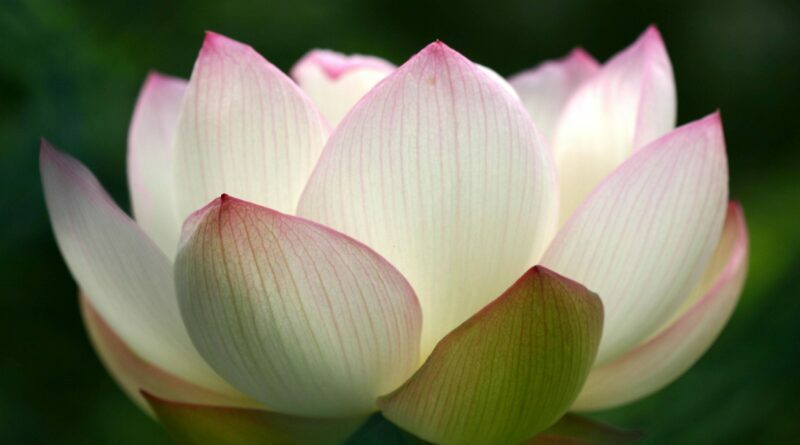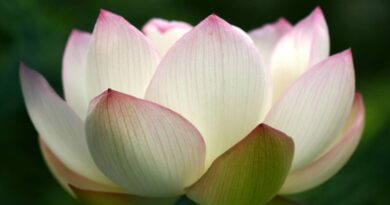FRAGMENTS
PART III
Fragments
§ The world is like a prison or a dungeon. People who are still tied up in their attachments to material things or to their good and bad moods are like prisoners tied down with fetters and bonds, and who can’t escape.
If they’re stuck on the eight ways of the world, both the good side—material gain, status, praise, and pleasure—and the bad—material loss, loss of status, criticism, and pain—they’re like prisoners shackled to a stake with a chain whose links are eight centimeters thick. This counts as a heavy sentence, and it’s going to be hard for them to get out of prison. Monks who come to comfort them can’t reach them, because they’re deep in the dungeon. They themselves can’t get out because of the fetters tying them down.
Some people are serving a lighter sentence, so their chains are only six centimeters or four. The lightest sentence is two centimeters. This refers to people who are attached to their bodies and minds, thinking that the body’s elements of earth, water, wind, and fire are the self, holding to the idea that the body is their body, that the mind is their mind. These people are serving a lighter sentence, the kind that can be remitted on good behavior. They have a chance of making good and being released into freedom.
§ Don’t look down on people who aren’t smart or who were born into a family of low status, because things of this sort depend on the actions that we have done in the past and that yield fruit in making us come here with different characteristics. For some people, even though they were born into a poor family, it’s simply a matter of kamma tossing them there. They can still have goodness as part of their mental current as well. They might reach the paths and fruitions someday in the future. The fact that their kamma tossed them into poverty may have simply been for the purpose of subjecting them to hardship so as to see the drawbacks of life, and to finish paying off their old kammic debts.
On this matter of kamma, the Buddha taught us not to be heedless—and don’t be heedless of what you can’t see. Don’t despise the gifts given by others, or their virtue or their meditation. They might have something good hidden inside, simply that it’s covered up by other kamma so that you can’t see it. If you treat them with disrespect, that kamma might come back at you so that you suffer from its results on into the future.
§ When directed thought is in the breath energy, evaluation is in the breath energy, and pleasure and rapture are in the breath energy, that’s when things gather into ekaggatā, or singleness of preoccupation.
§ Make your mind like a train running along the track. The breath is the track, the mind is the train, and mindfulness is the conductor driving the train. You have to make sure that the conductor isn’t drunk on alcohol, and that he’s intent on driving the train well so that it goes straight down the track. When the train goes smoothly up and down the track without any hitches, the results are that you’ll earn money from carrying passengers and freight. The money stands for inner worth and skillfulness. The passengers are the four jhānas, which will benefit the mind. The freight stands for the fullness of the physical properties, which will benefit the body.
§ Expanding the breath is beneficial both for yourself and for others. It benefits others in that it helps keep your body healthy and at ease. It benefits you in that it helps to expand the mind.
§ We have to build goodness within ourselves, with the help of the current from others. It’s like electricity. What we get is just the current that flows, not the actual power in the generator or battery.
§ The Buddha, Dhamma, and Saṅgha have to die, but the virtues of the Buddha, Dhamma, and Saṅgha are unable to die.
§ Thoughts are like knives. If you know how to use them, they benefit you. If you don’t know how to use them, they can harm you. Sometimes they can even kill you.
§ What is insight? Insight is entering in to know the condition of the Dhamma. The various ways that that condition manifests come from the suppositions and conventions that people use to grab hold of it. If these things disband, there’s nothing but the condition. For example, if a water glass simply sits there, it doesn’t break. Only when someone grabs hold of it will it break.
§ This body, if the mind doesn’t enter into it and latch onto it, is nothing more than a black piece of charcoal, that’s all. If the mind latches onto it with craving and clinging, it turns into a red-hot piece of charcoal. So when we separate the mind from the body, and there’s just the knowing of awareness, the body disbands, like a piece of charcoal from which the fire has disbanded.
§ When the body “disbands,” that doesn’t mean that there’s no body. It’s there, but you don’t fabricate it.
§ When pain arises and you focus your awareness on someone or something else in order to forget the pain, that’s okay, but it’s only mindfulness, not alertness. You have to know inside yourself for there to be both mindfulness and alertness.
§ Saṁvara means care and restraint. It’s like holding a water glass in your hand. You have to be careful to hold it well. If you let it go, the glass will drop and break. When the mind has entered in to be quiet in its theme of concentration, you have to be careful not to damage it. Your eyes can see forms, but don’t suppose them to be good or bad. Your ears can hear sounds, but don’t suppose them to be good or bad—and so forth.
§ To take pleasure in sights, sounds, smells, tastes, and tactile sensations is sensual craving. When the mind goes out looking for preoccupations but hasn’t yet found one that it likes, that’s craving for becoming. When the mind leans or wavers in a present preoccupation, that’s craving for non-becoming. If you don’t know these characteristics of the mind, that’s ignorance.
§ Before they can shape iron, they have to hold it over the fire until it’s soft and glowing red. In the same way, we hold the mind over the fire—i.e., we polish it with virtue and concentration—and only then can we use discernment to shape it.
§ In practicing concentration, the Buddha has us follow a single path: the one-way path (ek’āyana-magga). Normally, we follow up to six paths: the path of the eye, the path of the ear, the path of the nose, the path of the tongue, the path of the body, and the path of the mind. When the mind receives sensations from outside, it sometimes gets stuck on sights, sometimes on sounds, sometimes on smells, sometimes on flavors, sometimes on tactile sensations. As long as the mind isn’t established in a single preoccupation, no stillness will arise from it—because normally, when you follow lots of paths, you can’t follow them all at the same time. You have to take turns, following now this path and now that. As a result, none of these paths will be worn smooth, because you don’t walk constantly on any one of them. So these paths will have to be overgrown and filled with dangers. You might step on thorns or sharp rocks. Twigs and branches on the side of these paths will catch you in your eyes, ears, arms, or legs. And normally, an overgrown place tends to have biting ants, snakes, centipedes, and scorpions hiding out. When you don’t see them, you’ll step on them. They’ll bite you or sting you, infecting you with their poison or even killing you.
At the same time, if you’re in a hurry and need to take a shortcut, an overgrown path isn’t convenient, because you get stuck on this or that obstacle lying athwart the path, which means that you’ll reach your goal slowly or arrive too late. If you’re walking during the day, you can at least see the path. But if you’re walking at night, it’s really difficult.
The Buddha saw that following lots of paths is dangerous for people, so he made it a basic principle that we follow a single path—a path that’s pure, complete, and free of every kind of danger. In other words, he has us make our minds still in a single preoccupation. This is what’s called the development of concentration. This single path is the path that will take us to four treasures: stress, its origination, its cessation, and the path to its cessation. These noble truths are noble treasures that are genuine and never change.
§ Where does the genuine Dhamma lie? Spoken words, books, and texts are just the shadows of the Dhamma. The genuine Dhamma lies in the heart.
§ For the flavor of these things to go deep into your heart, you have to try them out so as to know their truth for yourself. You can’t simply hold by the words of others or by your own thoughts. You have to make actions your standard if you want to be in line with the principle of Buddhism that says, “We are the owners of our actions.”
§ You have to set your heart on abandoning evil until your dying day, and on doing good until your dying day: That’s when your intention is up to standard.
§ I’ve set my heart on giving every drop of blood in my body, from the head down to the feet, to the purposes of the religion. Whether it’s up in the sky or down under the ground, I ask to keep doing this to the end of my life.
§ Our defilements: If we rub them at the right spot, all we have to do is run our hand over them a single time and they’ll all wear away. If we rub at the wrong spot, we can keep rubbing for ten years and nothing will wear away at all.



